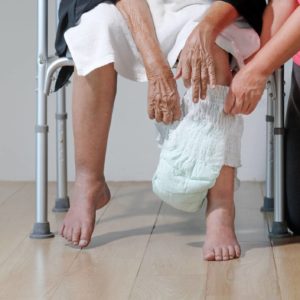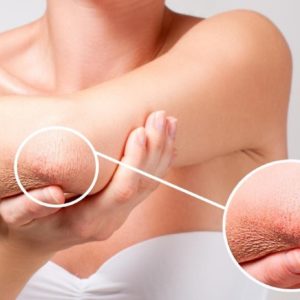Vitamin D3, also known as the ‘sunshine vitamin,’ is spontaneously produced through the skin when introduced to sunlight. While it is known to be a nutrient, the D3 smartly converts into a body hormone as well as flows in the bloodstream to support calcium and phosphorus absorption. It may be one of the few essential roles performed by vitamin D3. It is one of the best joint supplement.
Vitamin D3 Vs. Vitamin D2
Vitamin D comes with vitamins D2 – ergocalciferol and D3 – cholecalciferol in two separate ways. There has been some debate over the assumption that when it is absorbed vitamin D2 is as effective as vitamin D3.
The opinion is that the importance of 25-hydroxycholecalciferol (this is the chemical term for Vitamin D3) is about two and three times greater than the D3. Vitamin D2, which is most commonly present in humans and animals, is provided by plants. This is the bioactive compounds nutrient component formed in our skin in sunlight.
Vitamin D2 is cheaper to make, and it almost always occurs with vitamin D3 when one sees other products enhanced with vitamin D3, including cereals or orange juice. For vegan customers, nearly all vitamin D3 supplement are produced from lanolin-derived cholecalciferol, which is collected from sheep’s fur.
Vitamin D3 advantages

Benefits of vitamin D3 supplements for your body can be summed up in the following ways. Maybe the most critical aspect is to control calcium and phosphorus absorption, and to enhance the regular activity of the immune system.
An adequate quantity of vitamin D3 is essential for normal bone and teeth development and also enhances disease resistance. You can experience bone defects such as fragile bones if your body may not obtain enough vitamin D3. Additional benefits include,
- Battle disease with vitamin D3.
- Work shows that, in addition to its primary benefits, vitamin D3 may also play a part:
- Reduce your risk of sclerosis multiple.
- Decrease your risk of heart attack growth.
- Contribute to raising the chances of flu growth.
Vitamin D3 is also recommended to combat reduced calcium and phosphates with other conditions (e.g. hypoparathyroidism, pseudohypoparathyroidism or family hypophosphatemia) with certain drugs.
In renal disease it can be used to preserve regular calcium rates and enable natural bone development. Breast-feeding infants receive vitamin D drops (or other supplements), since breast milk normally has limited vitamin D levels.
Vitamin D3 Cuts away depression
Evidence has demonstrated that vitamin D3 may play a significant role in attitude regulation and depression management. Scientists also noticed an increase for their symptoms in people with depression who obtained vitamin D3 supplements. For another analysis of patients with fibromyalgia, vitamin D3 deficiency was observed in people with anxiety and depression more often.
Vitamin D3 Stimulates weight loss

Try introducing sources with vitamin D3 to your diet if you want to reduce weight or stop heart disease. A research was conducted to lose weight rather than the people consuming a placebo treatment with a daily intake of calcium and vitamin D3. The researchers have documented the application of calcium and vitamin D3 to reduce appetite. Overweight individuals who obtained a daily vitamin D3 supplement increased their risk factors for heart failure in another report.
Reasons for Vitamin D3 deficiency
Several things will affect the ability to get enough vitamin D3 even from the light. The relevant considerations are:
- Living in a heavily polluted environment
- Sunscreen Use
- Spend more time at home
- Live in big cities that obstruct sunshine from buildings
- A darker skin (More melanin contributes to less vitamin D3 consumption by the skin.)
These components influence an increasing number of people’s vitamin D3 deficiency. Therefore it is necessary, besides the sunshine, to obtain some of your vitamin D3 from sources.
Vitamin D3 deficiency symptoms

- Tiredness, discomfort and a sense that it doesn’t taste well.
- Extreme bone or muscle pain or fatigue that may make it impossible for you to step up steps, or get up from the floor, or to a low chair.
- Stress fractures of the thighs, pelvis and hips of particular.
The vitamin D3 deficiency may be treated by doctors through a standardized blood check. Your doctor can order X-rays to test your bones’ strength if you have a defect.
The doctor possibly would suggest taking regular vitamin D3 supplements if you are dealing with a vitamin D3 deficiency. We can prescribe high-dose vitamin D3 or beverages instead if you have a severe deficiency. You will need to ensure that vitamin D3 is supplied via the sun and foods you consume.
Conclusion
Besides controlling the calcium and phosphorus proportion in our body, vitamin D3 improves the body’s overall safety and health. Having adequate vitamin D3 makes our immune systems work healthily and increases tolerance to other diseases. This also has a function to perform in the separation of cells and ensuring that good bones and teeth are preserved. Vitamin D3 is important for the production and preservation of bones and immune systems by infants, who play a key role in normal growth and maintenance.




